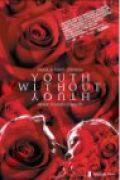
Directed by
Francis Ford Coppola
124 minutes
Rated M
Reviewed by
Bernard Hemingway

Youth Without Youth
Synopsis: On the eve of World War II, Dominic (Tim Roth), a lonely, disappointed 70-year-old Romanian linguist decides to kill himself. Before he can do that, he is struck by a bolt of lightning that mysteriously instigates his physical regeneration. A medical enigma, he becomes an object of interest to the Third Reich. The Reich falls and later whilst hiking in Switzerland, Dominic meets a woman (Alexandra Maria Lara) who resembles the lost love of his youth. Now Veronica, she is also struck by lightning, regresses to past lives and starts to grow older. Through her Dominic is fulfilling his life’s work and discovering the origins of language, but is tormented by the thought that she is dying because of him.Francis Ford Coppola’s first movie for ten years is, needless to say, a highly anticipated event. The failure of Youth Without Youth is less because of the disparity between audience expectations and the actuality of the film than simply because what is on screen is so comprehensively unsatisfying. Why that is so, given Coppola’s experience as a film-maker, is more likely to be the subject of post-viewing discussions than anything about the film itself.
Youth Without Youth is based on the writings of Romanian-born academic, Mircea Eliade, including the novella of the same name on which Coppola’s film is based. Eliade was a specialist in the subjects of religion and myth in human experience. Ideas about how the relationship between the invisible and the visible plays out, although fascinating to some, are not easy to grasp in everyday verbal terms, probably more so in our secularized, rationalist times than ever before. It is in this context ironic that art is often cited as the medium most suited to give form to them. Ironic, because Coppola, rightly regarded as one of America’s most visionary film directors and one of its true cinema artists, falls back on clumsy verbal exposition to try to get those ideas across.
There have been recent efforts that have delved into ideas about alternate consciousness, parallel universes, reincarnation, karma and so on, notably David Lynch’s Inland Empire and Darren Aronofsky’s The Fountain (both released in 2006) and if they have been opaque they have at least used the cinematic form to take the viewer on a journey into unfamiliar realms (Vincent Ward also tried it with theme-parkish results in What Dreams May Come,1998). Coppola’s film on the other hand makes you feel like you are wading chest deep through a swamp of confusion, his script regularly putting expository dialogue into the mouths of his characters much as did the old B grades in the days when Freudian psychology and the rumblings of the unconscious were all the rage amongst Hollywood scriptwriters. The result borders on the comical. Indeed, when Nazis with an interest in occult science get involved and fire up their Frankensteinian laboratory one wonders if the film isn’t morphing into a genre spoof. But, no, unfortunately Coppola appears to be deadly serious and the soupçon of parody soon disappears. And that makes for a very long film as the plot jumps back and forth in time and from country to country whilst Tim Roth’s character (who maybe Francis Ford himself) acquires a doppelganger, pursues the Holy Grail of True Knowledge and tosses off asides on metempsychosis and other such metaphysical goings-on
Given its opacity it is surprising that Coppola, who apparently financed the film himself and shot it on location in Romania with limited resources, actually released it. Presumably for him, at the same age as the Roth character, it is a film with much meaning but I doubt there will be many in the audience who will be able say the same. As one would expect, Youth Without Youth is a technically well-made film, with Mihai Malaimare Jr’s photography often impressing but in the up-and-down landscape of Coppola’s career, this film makes its peaks seem a long way off.
FYI: Coppola clearly is interested in time warps, having also directed Peggy Sue Got Married (1986) about a woman (Kathleen Turner) who magically re-lives her teen years and Jack (1996) about a boy (Robin Williams) who prematurely ages.

Want more about this film?


Want something different?




